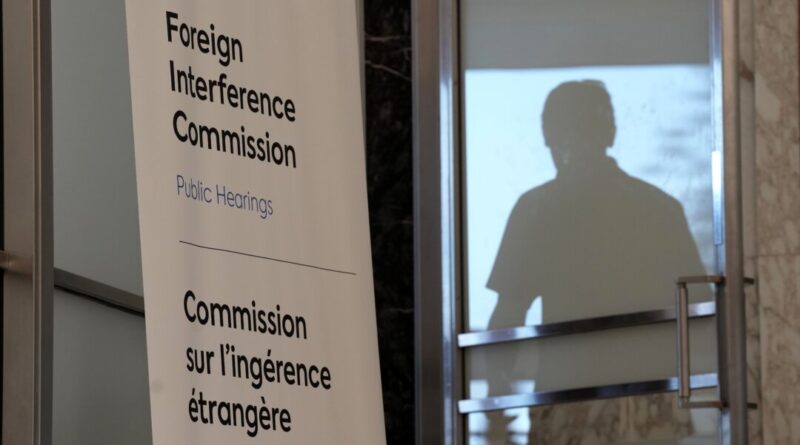Federal Parties’ Positions on Foreign Interference and Transnational Repression as Election Approaches
Canada’s major political parties have articulated their stances on foreign interference and transnational repression in response to a joint letter supported by numerous civil society organizations. The parties’ replies demonstrate “clear differences in tone, emphasis, and commitment,” as noted by the groups.
The Canadian Coalition for a Foreign Influence Transparency Registry, along with the Human Rights Coalition, sent a joint letter on April 3 urging major federal parties to take a definitive public position on influence operations by authoritarian regimes like China, Russia, and Iran, as well as transnational repression activities impacting diaspora communities in Canada.
More than 40 civil society groups, including human rights NGOs, think tanks, and advocacy groups representing affected communities, endorsed the joint letter. The aim was to provide Canadian voters with essential information for the upcoming federal election scheduled for April 28.
“Transnational repression is not just a concept—it is happening in Canada right now,” stated Sarah Teich, spokesperson for the Human Rights Coalition, in an April 22 press release. “Authoritarian governments are intimidating, monitoring, and pressuring individuals on Canadian soil. While we appreciate the commitments made by some parties, we urge all federal leaders to address this issue urgently and seriously.”
The groups inquired about the parties’ positions on three main issues: the complete and timely implementation of the foreign influence transparency registry proposed in Bill C-70, the development of a national strategy to tackle transnational repression, and their dedication to disrupting covert foreign influence.
Tay, a Canadian citizen and pro-democracy activist, was among those targeted by Hong Kong authorities with international bounties. The transnational repression campaign against Tay, disseminating negative content, was conducted on platforms popular amongst Chinese-language speakers in Canada, linked to Chinese regime authorities and pro-Beijing groups in Hong Kong.
Liberal Party
In response to the joint letter from civil society groups, the Liberal Party highlighted the actions taken by former Prime Minister Justin Trudeau’s administration to combat foreign interference and committed to further building on these efforts under a new government led by Liberal Leader Mark Carney.
The party’s response emphasized foreign interference as a significant threat facing Canadians and Canadian institutions, citing past measures such as investments in national security agencies like CSIS and CSE, legislation to enhance tools available to these agencies, and criminalizing transnational repression activities.
The party affirmed Carney’s commitment to the foreign influence registry, but civil society groups noted that the letter did not address the delayed implementation of the registry. Additionally, the Liberals pledged to enhance security measures by recruiting 1,000 more RCMP officers.
Earlier in the month, SITE identified an information operation associated with Beijing aimed at influencing Chinese-Canadian voters on Carney by disseminating both positive and negative narratives.
Conservative Party
Responding to the joint letter from civil society groups, the Tories committed to expediting the implementation of Bill C-70, emphasizing that a Conservative government would take foreign interference and transnational repression seriously.
“Notably, the foreign influence transparency registry has yet to be implemented by the Liberal government,” Chong stated. “Conservatives believe this should be prioritized.”
Chong pledged to ensure that the RCMP can fulfill its duties, including combating transnational repression and foreign interference. He also mentioned that a Conservative government would heed the advice of Canada’s national security experts and focus on reforming and strengthening anti-money laundering laws.
Bloc Québécois
The Bloc expressed its support for establishing a foreign influence transparency registry, emphasizing their continual pressure on the government to establish it.
New Democratic Party (NDP)
In its response, the NDP expressed profound disappointment in the delayed implementation of Bill C-70, noting the failure of both Trudeau and Carney to appoint a commissioner to enforce the legislation.
The NDP regarded Bill C-70 as a crucial step in enhancing deterrence against foreign state actors and promised to ensure the establishment of a foreign agent registry.
“Foreign interference is a significant concern that surpasses partisan boundaries,” the party asserted. “Diaspora groups have long encountered threats and interference, and transnational repression is unacceptable.”
The NDP committed to implementing the recommendations of the Hogue report, collaborating with diaspora groups and organizations to confront these issues directly. Additionally, the party pledged to introduce new measures to combat misinformation and disinformation through supporting digital literacy initiatives and addressing online discrimination, misinformation, and hate.
Green Party
The Green Party affirmed its dedication to establishing a foreign influence transparency registry, advocating for a clear, effective, and responsible registry that preserves legitimate civic engagement.
The party’s foreign policy framework is rooted in values like peace, human rights, and robust democracies.
The Green Party echoed deep concerns about the intimidation, surveillance, and coercion faced by diaspora communities in Canada from authoritarian regimes, expressing support for stronger protections against foreign interference in Canada.
The party proposed establishing a National Cyber Defence Agency to counter digital threats like disinformation and intimidation campaigns. It emphasized the need to reform policing for accountability, transparency, and inclusivity, as well as securing natural resources and critical infrastructure from foreign interference.
To address covert influence by authoritarian regimes, the party outlined plans to enhance protections against foreign interference in Canadian elections, such as expanding rules on third-party political financing and incorporating AI-based threat detection.
People’s Party of Canada
The People’s Party of Canada (PPC) identified “mass immigration” as a primary driver of foreign interference, attributing it to the cultural preservation of newcomers instead of integrating into Canadian society as a cause for susceptibility to foreign influence.
“Many immigrants retain loyalty to their home country rather than embracing Canadian identity, enabling foreign governments to exert influence in immigrant communities in Canada,” the party remarked. It classified foreign interference as a malevolent influence and proposed a moratorium on immigration to counter this issue.
The PPC also pledged to equip intelligence agencies with the necessary tools to combat foreign interference and proposed deporting individuals who have overstayed their visas.
Civil society groups commended the initiatives of the parties but emphasized the need for stronger responses to foreign interference.
“The responses received indicate a growing recognition across party lines of the significant threat posed by authoritarian foreign regimes,” stated Gloria Fung, spokesperson for the Canadian Coalition for a Foreign Influence Transparency Registry. “However, Canadians cannot afford further delays. We require swift implementation of Bill C-70 and a comprehensive strategy to safeguard vulnerable communities.”
Noé Chartier contributed to this report.





